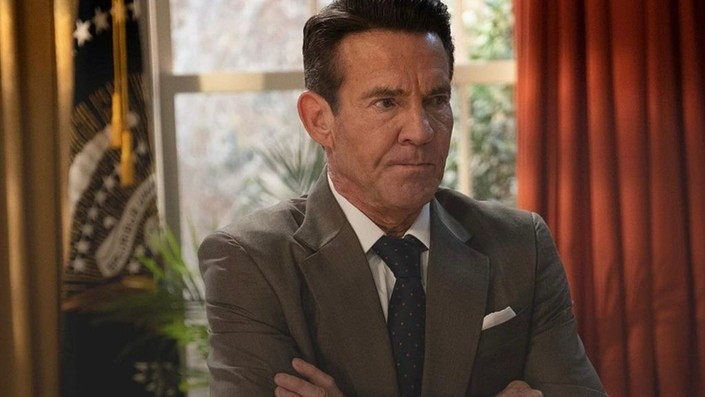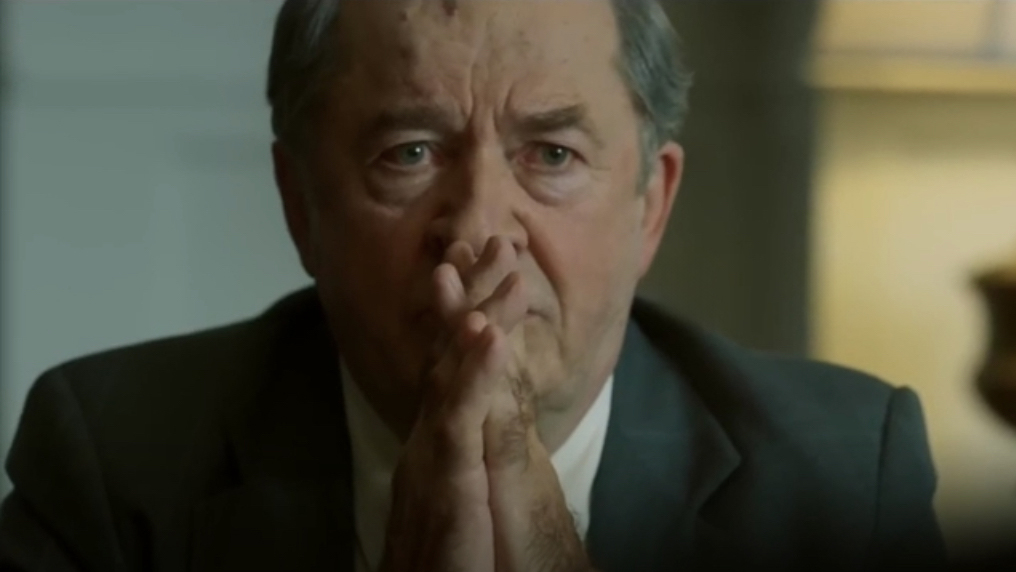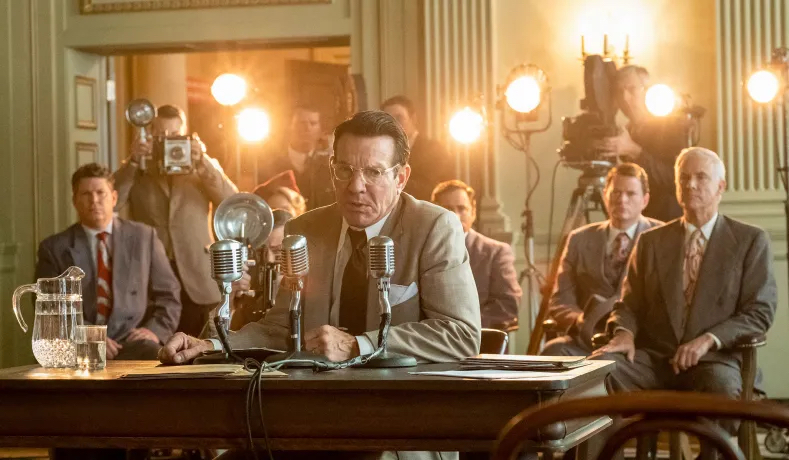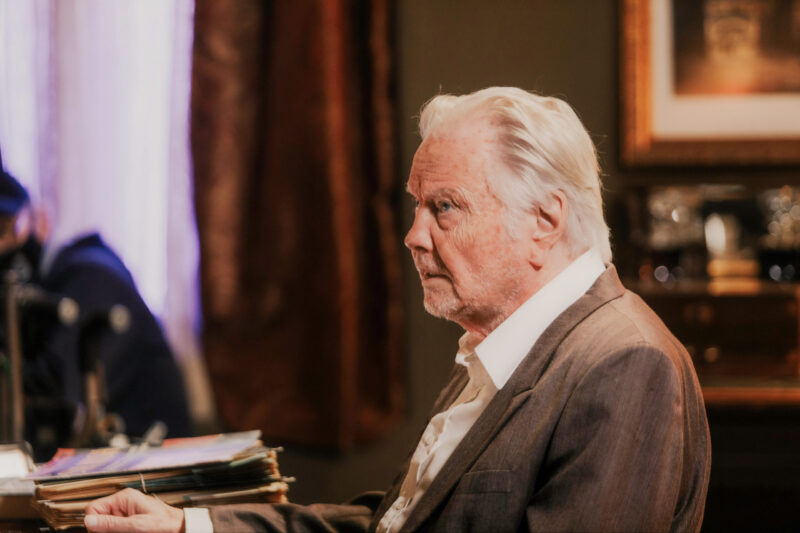Reagan is a biopic that ambitiously tackles the life of a man who transformed from a Hollywood actor to a two-term president, leaving an indelible mark on American politics. Directed by Sean McNamara and starring Dennis Quaid as Ronald Reagan, the film is a sweeping portrayal that moves through decades of history, capturing both the public persona and personal intricacies of the 40th president.
Dennis Quaid doesn’t just impersonate Reagan—he inhabits him. Quaid’s performance, nuanced and studied, is less about imitation and more about essence. With impeccable timing and an impressive command of Reagan’s voice, Quaid portrays a figure as much a product of Hollywood as of the political stage. In a film that spans his years as a sports broadcaster, actor, and governor to his time in the Oval Office, Quaid effectively reflects how Reagan’s career in front of the camera laid the foundation for his presidential demeanor.

The film makes no attempt to rush through the events of Reagan’s life. Its over 2-hour runtime is deliberate, not only charting Reagan’s rise but also taking time to explore the less glamorous aspects—his early struggles, personal relationships, and ideological shifts. At its core, Reagan aims to show the evolution of the man behind the polished speeches and political machinations, with McNamara grounding the story in moments that emphasize Reagan’s humanity.
Nancy Reagan, played with understated strength by Penelope Ann Miller, is depicted as a crucial figure in her husband’s life and career. Miller’s portrayal avoids caricature, presenting a woman who is both fiercely protective and deeply supportive—a figure whose own ambitions are tightly interwoven with those of her husband. The film does well to reflect her pivotal role in Reagan’s trajectory, offering a quieter counterbalance to the more public Reagan persona.

What might have been merely a nostalgic portrait becomes much more engaging in its portrayal of Reagan’s pivotal role on the world stage, particularly in his interactions with Soviet leader Mikhail Gorbachev. The film devotes significant attention to these encounters, reminding viewers of the stakes of Reagan’s diplomacy. Their interactions are tense yet respectful, a fascinating window into the delicate balance of power politics during the Cold War. The looming presence of the Berlin Wall—both physical and metaphorical—serves as a reminder of Reagan’s staunch opposition to communism, a theme that reverberates throughout the film.

The production design is meticulous, seamlessly transporting viewers through various eras. From the idyllic small-town streets of Reagan’s youth to the buttoned-up formality of the Oval Office, each set feels lived-in and authentic. It’s a testament to the filmmakers’ attention to detail that the film’s visual language feels as historically accurate as its script.
And then there are the smaller moments that humanize Reagan. His well-documented love for jellybeans, which makes several appearances in the film, is portrayed with a playful lightness. I couldn’t resist picking up a bag myself—now sitting beside me as I write this review.

Reagan is not without its slow patches. The film’s pace reflects the breadth of Reagan’s life, which may test the patience of some viewers, particularly those less familiar with the intricacies of 20th-century American politics. Yet, for those willing to invest, the film delivers a layered exploration of a presidency marked by diplomacy, optimism, and a particular brand of charisma that, even now, continues to define the man known as “The Great Communicator.”

In the end, Reagan is a film that doesn’t simply chart a man’s path to the presidency—it charts the arc of a nation at a pivotal moment in history. It’s a film about diplomacy, leadership, and legacy. For those willing to sit with the material, it’s an engrossing look at a man whose impact is still deeply felt today.
I give Reagan 5 out of 5 stars.




